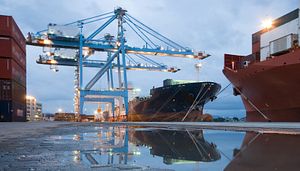Japanese Prime Minister Shinzo Abe’s tour through Latin America, previously discussed here at The Diplomat, has finally been confirmed. Yoshihide Suga, Japan’s Chief Cabinet Secretary said on Tuesday that Abe would embark July 25 on an 11 day tour visiting Mexico, Trinidad and Tobago, Colombia, Chile and Brazil, according to NHK World. Strengthening and improving ties throughout the region will be the main agenda as Latin America’s growing consumer markets and relatively cheap labor near one of corporate Japan’s biggest markets, the U.S., make the region of growing importance for Japan. Two of the greatest opportunities during this trip will be Abe’s stops in Brazil and Trinidad and Tobago, which offer chances to make solid economic gains and possibly improve Japan’s security profile.
Brazil is predictably the most significant country that Abe will visit. While Mexico is closer to the U.S., and already enjoys substantial Japanese investment and trade, it suffers from instability due to its cartel wars and requires significant infrastructure investment to integrate its disparate, mountainous regions. Brazil’s security situation, while not perfect, is much more stable. It is also Latin America’s economic growth engine, and Japan is eager to harness its growing labor and consumer bases.
According to the Yomiuri Shimbun, Abe is expected to announce at a summit meeting with Brazil’s President Dilma Rousseff on August 1 Japanese plans to improve Brazilian railways, roads and ports (among other infrastructure investments) in order to facilitate greater grain exports. This will target the Cerrado grasslands where Japan provided financial assistance from 1979 to 2001 that significantly increased the region’s soybean production. Abe will also discuss Japan’s Latin America policy in general at the summit, the timing of which is significant because Chinese President Xi Jingping just finished his own tour of South America, including an important stop in Brazil. There are reports that Brazil is looking to expand its rail network in general, and both Japan and China’s national rail companies are eager to expand into new markets.
Trinidad and Tobago will be an important stop because Abe will be attending the first Japan-Caribbean Community (CARICOM) summit. Trade will be important, as Japan plans to announce technical assistance in three areas: energy, fisheries and disaster prevention. However, CARICOM’s 14 members make up 7 percent of the U.N. General Assembly, and the Japanese government has said that part of the goal for this tour is to secure a nonpermanent seat on the U.N. Security Council next year. Providing significant and concrete assistance to these countries will help in that effort, and perhaps sway favor in CARICOM toward Japan. China considers the Caribbean to be of growing strategic interest, yet only nine of the fourteen members recognize it over Taiwan.

































